Top 5 List Of The Healthiest Foods For Your Brain
If you have a brain, you will want to read this Top 5 list. 😉
The top 5 foods for brain health, to keep you smart and prevent diseases such as Alzheimer’s:

1. Wild Salmon
Wild salmon an incredible food for brain health!It is extremely healthy in just about every area of human health and is one of the healthiest foods that you can eat!Wild salmon (not farm-raised) is one of the best sources of Essential Fatty Acids (such as the all-important Omega-3), a rich source of high-quality animal protein, low saturated fat and is generally among the lowest amounts of contaminants (such as mercury) among seafood.Other health properties of wild salmon include improving your brain matter, your mood, your synaptic connections, your arteries, reducing your risk of stroke , Dementia and Alzheimer’s.
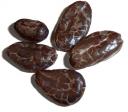
2. Cacao Beans
No, I don’t mean milk chocolate candy bars! Sorry.
The cacao bean, when minimally processed is one of the world’s longest-revered foods (back to the ancient Aztecs) and has in recent years been shown to be a veritable powerhouse of cognitive enhancement, mood and bliss-enhancement.
It is loaded with Theobromine, antioxidants, flavonoids, catechins and many other brain & body-enhancing elements. In fact, chocolate has been very recently cited by some top health professionals and researchers to be THE single most exciting health food.
Chocolate is now being hailed as beneficial to everything from brain health to skin elasticity to cardiovascular health to anti-cancer and pretty much everything in between!
So if you want the real benefits your best bet is to either use 100% organic non-alkalized cocoa powder from a high-quality maker who minimally processes the cocoa to ensure that the health properties are retained, or, second best, choose only high cacao percentage dark chocolate bars (typically at least 75% cacao content or higher) also from a high-quality provider.
It’s easy to mix a large spoonful of 100% organic cocoa powder with a bit of espresso, organic unsweetened soy milk and some cinnamon, even a sprinkle of cayenne red pepper (you all know how much I love using cayenne) in the morning. It’s one tasty, brain & body-fueling drink that gives you your pure cacao bean dose without the sugars and milk fat, you get your protein from the soy milk, brain-enhancing (and blood sugar-stabilizing) cinnamon, a little brain-enhancing caffeine from the espresso and theobromine (plus more) from the chocolate, and a digestion, brain-enhancing and respiratory-enhancing kick from the cayenne pepper.
Yes: chocolate is a brain health food. Specifically, the cacao bean is.
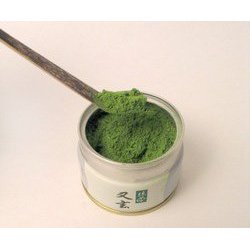 3. Matcha (Tencha-grade green tea powder)
3. Matcha (Tencha-grade green tea powder)
Matcha is finely-ground powder of the highest-quality, most revered part of the shade-grown green tea plant. They are carefully grown, selected, dried, stone-ground, processed and prepared according to ancient Japanese traditions. This stuff does not come in tea bags and you certainly do not brew it or boil it.
When you drink real stone-ground Japanese Matcha, you’re not only drinking the arguably highest-quality, most carefully cultivated green tea variety, you’re actually eating the whole thing, you’re drinking the green tea leaf itself, whole, in powdered form mixed with hot (Not Boiling!) water.
The powder itself is so rich in chlorophyl that it’s literally bright green, and when mixed with water it becomes a rich, bitter-sweet concoction whose effects you can actually FEEL almost immediately after drinking a cup.
Perhaps best known as the traditional, ceremonial drink tightly interwoven with the Buddhist ceremonies and tradition, Matcha’s unique effects on the brain were a perfect fit for those monks in Japan preparing to endure 12-hour straight meditation sessions: calming and focusing while stimulating at the same time, it’s no wonder that Matcha became integrated into the monks’ meditative practices (thanks in large part to the amino acid L-Theanine).

When you drink real Matcha yourself, you too will…understand.Matcha has 10X times the health benefits of normal green tea in general, because you’re drinking an extremely concentrated, ultra-high quality form, Antioxidants, catechins, vitamins and all with the meditatively calming yet focusing effects of L-Theanine.
EGCG: Epigallocatechin Gallate, a compound found uniquely in green teas which has been shown to possess almost unbelievable anti-cancer, anti-aging and overall health benefits…so much so that ‘EGCG’ has become a health marketing buzzword for tea companies. Here’s where Matcha is really unprecedented: Matcha contains exponentially higher amounts of EGCG than regular brewed green tea (including high-quality fresh Sencha green tea). Matcha also has over 33 times the antioxidant levels of antioxidant powerhouse blueberries!!
So if you’re looking for a great way to get a veritable blast of antioxidants (not to mention EGCG, vitamins, minerals, etc.), boost your brain with Zen-like concentration and physical benefits, it’s hard to beat Matcha. And you can’t get that with a tea bag.
Good deal ond premium Matcha: Matcha Powdered Green Tea, Premium Thin Grade, 20g
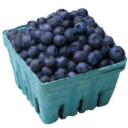
4. BlueBerries
These “brain berries” are a well known, easy to find, super food that should be part of your daily diet!
In laboratory animal studies, researchers have found that blueberries help protect the brain from oxidative stress and reduce the effects of age-related conditions such as Alzheimer’s disease or dementia. Researchers found that diets rich in blueberries significantly improved both the learning capacity and motor skills of aging animals, making them mentally equivalent to much younger ones.
Recently, researchers at Tufts University analyzed 60 fruits and vegetables for their antioxidant capability. Blueberries came out on top, rating highest in their capacity to destroy free radicals.
They are also packed with antioxidant phytonutrients called anthocyanidins, blueberries neutralize free radical damage to the collagen matrix of cells and tissues that can lead to cataracts, glaucoma, varicose veins, hemorrhoids, peptic ulcers, heart disease and cancer. Anthocyanins, the blue-red pigments found in blueberries, improve the integrity of support structures in the veins and entire vascular system. Anthocyanins have been shown to enhance the effects of vitamin C, improve capillary integrity, and stabilize the collagen matrix (the ground substance of all body tissues). They work their protective magic by preventing free-radical damage, inhibiting enzymes from cleaving the collagen matrix, and directly cross-linking with collagen fibers to form a more stable collagen matrix.
In summary, they are good for your heart, eyes, veins, joints and may prevent cancer, and they taste good too!
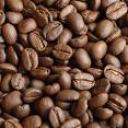
- 5. Coffee beans
Yet another suprise on this list, at least it was for me. Coffee is as misunderstood as chocolate, because the coffee bean, much like the cacao bean, is incredibly rich with antioxidants, amino acids, vitamins and minerals. Fresh-ground gently roasted coffee bean powder has numerous brain and body health benefits.
Regular coffee consumption has been shown to actually reduce the risk of mental decline and diseases such as Dementia and Alzheimer’s.
So does that mean coffee is healthy? The problem comes when coffee is combined with other unhealthy things, such as sugar, artificial sweeteners and cream. If you want a cup of quick death, try a Carmel, butterscotch, high fructose corn syrup with splenda, cool whip mocha creme.
If you want the health benefits, try a high-quality organic coffee freshly ground into an Espresso-grade powder and served as a shot or two of fresh espresso. Nothing else added. Don’t let your taste buds lead to your early demise. 😉
Many people still view coffee a ‘vice’ or something ‘naughty’ that should be avoided. Generally speaking, the coffee bean is a safe, true superfood. When properly consumed in ideal forms (such as pure Espresso), it’s one uniquely enjoyable beverage that also packs a host of brain and health-friendly properties to boot!
Be sure to look below for the link where you can buy ME a cup of coffee!!










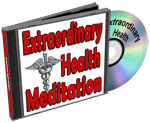

I do two out of five currently
Excellent article, John, thank you! Especially interesting is the point that the health benefits which many products (such as cocoa and coffee) offer in their natural state are wiped out by modern processing. We then insist on adding extras such as sugar to make good, natural foods ‘taste better’ (do they really?). Perhaps we need to release the programming that makes us automatically reach for the fancier versions of food, drink and many other things besides.